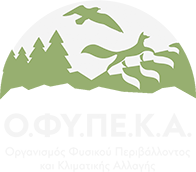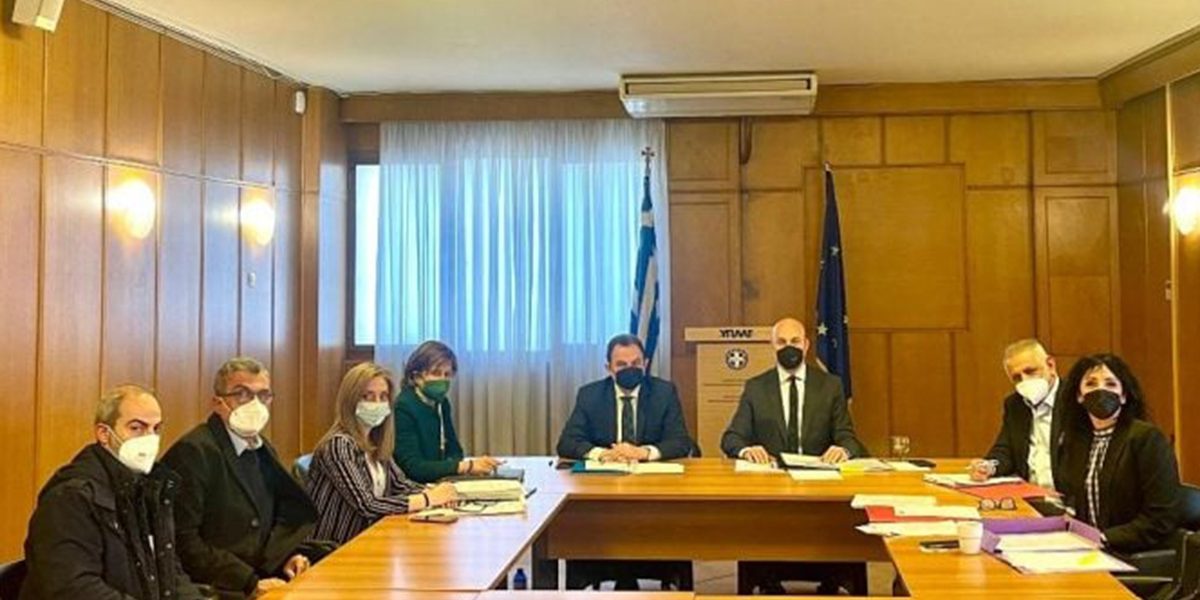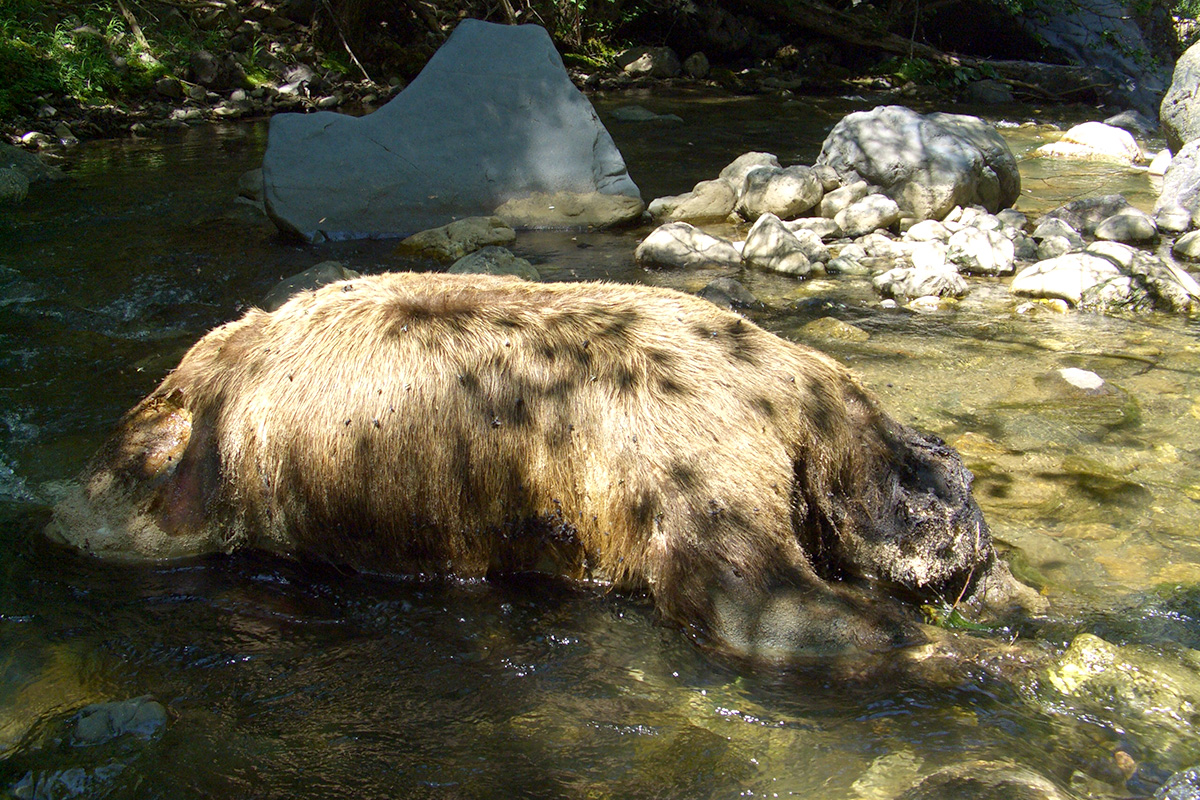22nd of February: National Day of Action against the poison baits.
An important step in a long road to protect nature and wildlife
The use of poison baits aiming to kill animals in the countryside is a complex problem, in which various social teams of people are involved and interact, with different motivations. At the same time, it is an illegal practice, which seriously damages, both indirectly and directly, the natural environment and the humans. Recently, some steps have been taken, in order to deal with this practice in our country, such as the signing of a Joint Ministerial Decision to solve the problem, as well as the awareness of the citizens concerning the problem, with the establishment of February 22nd as “National Day of Action against of poison baits”. On the occasion of this day, information-awareness actions will be carried out in various regions of the country, during the period 20th-24th February. However, the most important step, namely the composition and the enforcement of Local Action Plans, in order to put what is defined in the relevant Joint Ministerial Decision in action, is still under implementation.
Although the fact that the use of poison baits has been declared illegal since 1993, unfortunately it is still a common practice in the Greek countryside. The poison baits mainly target the wildlife species (bear, wolf, boar, badger, fox, ferret), either as self-justice, after some damage that wild animals inflict to agricultural production or to breeding animals or as a way to avoid such potential damages.
There are not a few cases related to personal disputes and conflicts between livestock breeders and farmers in a specific area, and the most common victims are working dogs (sheep dogs, hunting dogs, truffle dogs). Then, considering that both the poison baits themselves and the poisoned animal corpses can be consumed by scavengers, species such as Griffon Vulture, Egyptian Vulture, Golden Eagle, Cinereous Vulture etc. are also victims and are lead to death.
The most important milestones for the reduction of the damage, due to poison baits in the country
This year, marks 11 years, since the worst poisoning incident ever recorded: on 22nd February 2012, the Griffon Vulture colony and the Golden Eagle population were totally extinct in Nestos straits. This incident was the reason for the constitution of the “Working Group Against Poison Baits” which today consists of the following organizations:
ANIMA, ARKTOUROS, the Hellenic Society for the Protection of Nature, the Hellenic Ornithological Society, the Society for the Protection of Biodiversity of Thrace, Kallisto, the Natural History Museum of Crete and WWF Hellas. This Team collects data that concerns the size of the problem, the use of poison baits in Greece and sends the relevant technical reports, records and proposals to the State.
One year ago, after the informational event of the Working Group, in collaboration with four European Projects (Balkan Detox LIFE, LIFE ARCPROM, LIFE «ΖΩΗ για τον ΑΣΠΡΟΠΑΡΗ» και LIFE Bonelli eastMed), the Ministry of Environment and Energy and the Ministry of Agricultural Development and Food have jointly declared February 22nd as “National Day of Action Against the Poison Baits”. The two Ministries, thus, placed under their auspices all the events that will take place every year, in the framework of this day, in collaboration with environmental organisations and other stakeholders, with the aim of informing the citizens about the negative impact of the use and dispersal of poison baits in nature on the protection of wildlife species, which also affects both the breeding and the working animals.
On 22nd of August 2022, with the collaboration of two more Ministries (Ministry of the Interior and Ministry of Citizen Protection), the long-awaited Joint Ministerial Decision entitled “Measures and procedures for the control of the illegal use of poison baits in wildlife species – Coordination of competent services and management bodies” was finally published in the Official Government Gazette. This Joint Ministerial Decision was necessary to clarify the responsibilities of the involved services, such as the Forestry Administrations, the Police, the Veterinary Services, the Department of the Veterinary Medical Center of Athens, etc. The advantages are the institution of the Special Poison Bait Detection Units with specially trained dogs that can detect poison baits in time, before they lead victims to death.
However, despite the positive developments, the most basic step in the fight against poison baits has not been done yet: The composition and enforcement of the Local Action Plans by the competent Forestry Services remains to be implemented, in order to check in practice how effective the Joint Ministerial Decision is. We hope the relevant Circular, sent by the Ministry of Environment and Energy about a month ago (10/01/2023), will expedite the process, as some of the species threatened by poison baits are literally on the edge of extinction.
On the occasion of the National Day of Action, all members of the Working Group will organize awareness actions for the public. In addition, the Poison Bait Detection Team of the LIFE Bonelli eastMed project for the protection of the Bonelli’s Eagle will carry out awareness actions in schools in Rhodes and Heraklion of Crete.
Finally, the Working Group supports all the actions that will be carried out by the local Management Units of the Natural Environment and Climate Change Agency (N.E.C.C.A.): In Evmiros of Xanthi, in Paranesti of Drama, in Laimos of Florina (Prespa lakes), in the area of Koroneia – Volvi lakes, in Messolongi, in Leonidio of Peloponnese and in Ioannina, N.E.C.C.A. organizes information and awareness actions for the educational community, the land users (breeders, members of hunting associations, etc.) and the local communities.
Joint Media Release from the members of the Working Group Against Poison Baits:
- ANIMA
- ARKTOUROS
- Hellenic Society for the Protection of Nature
- Hellenic Ornithological Society
- Society for the Protection of Biodiversity of Thrace
- Kallisto
- Natural History Museum of Crete
- WWF Hellas





